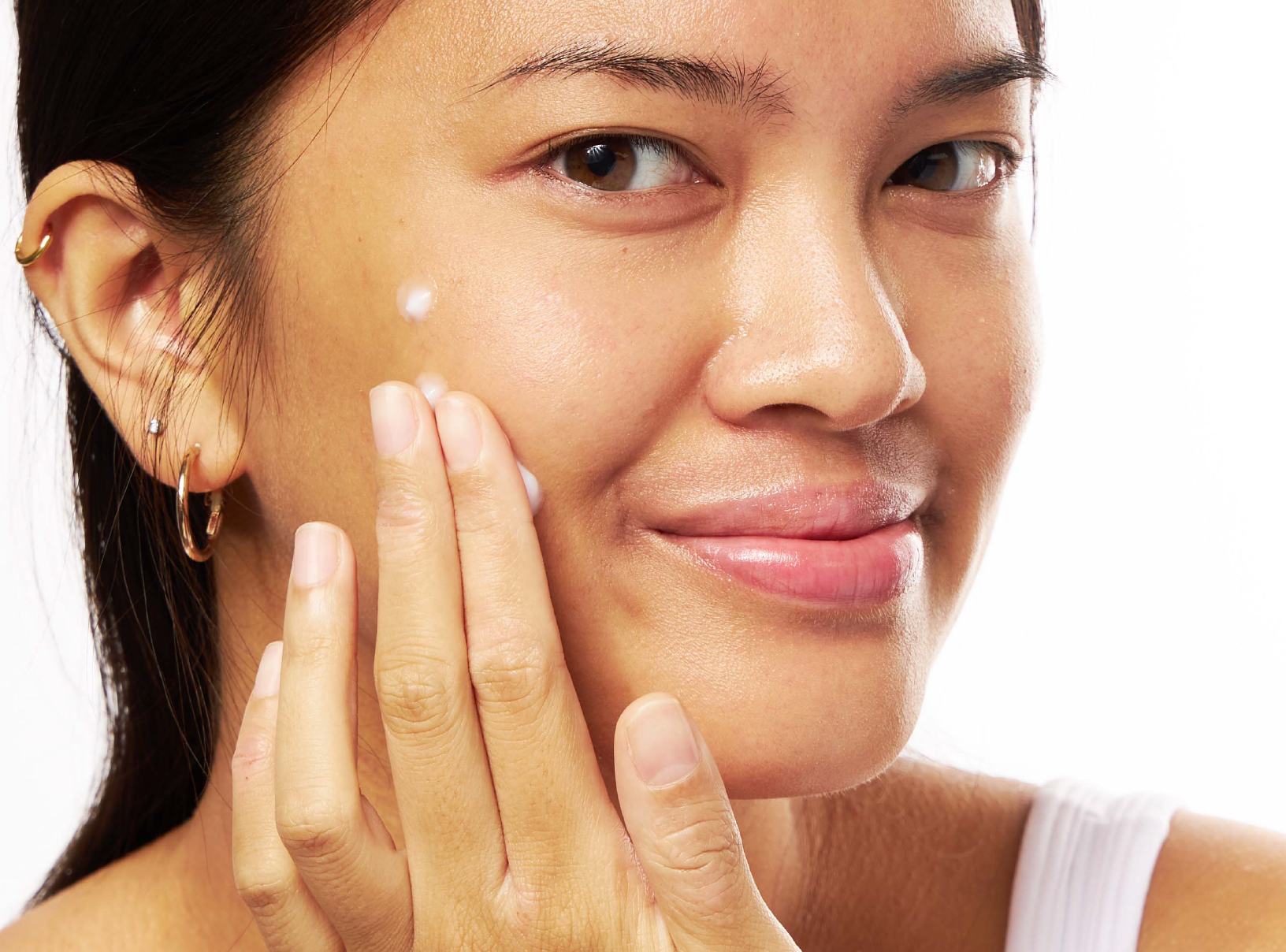Education
Best teen acne treatment
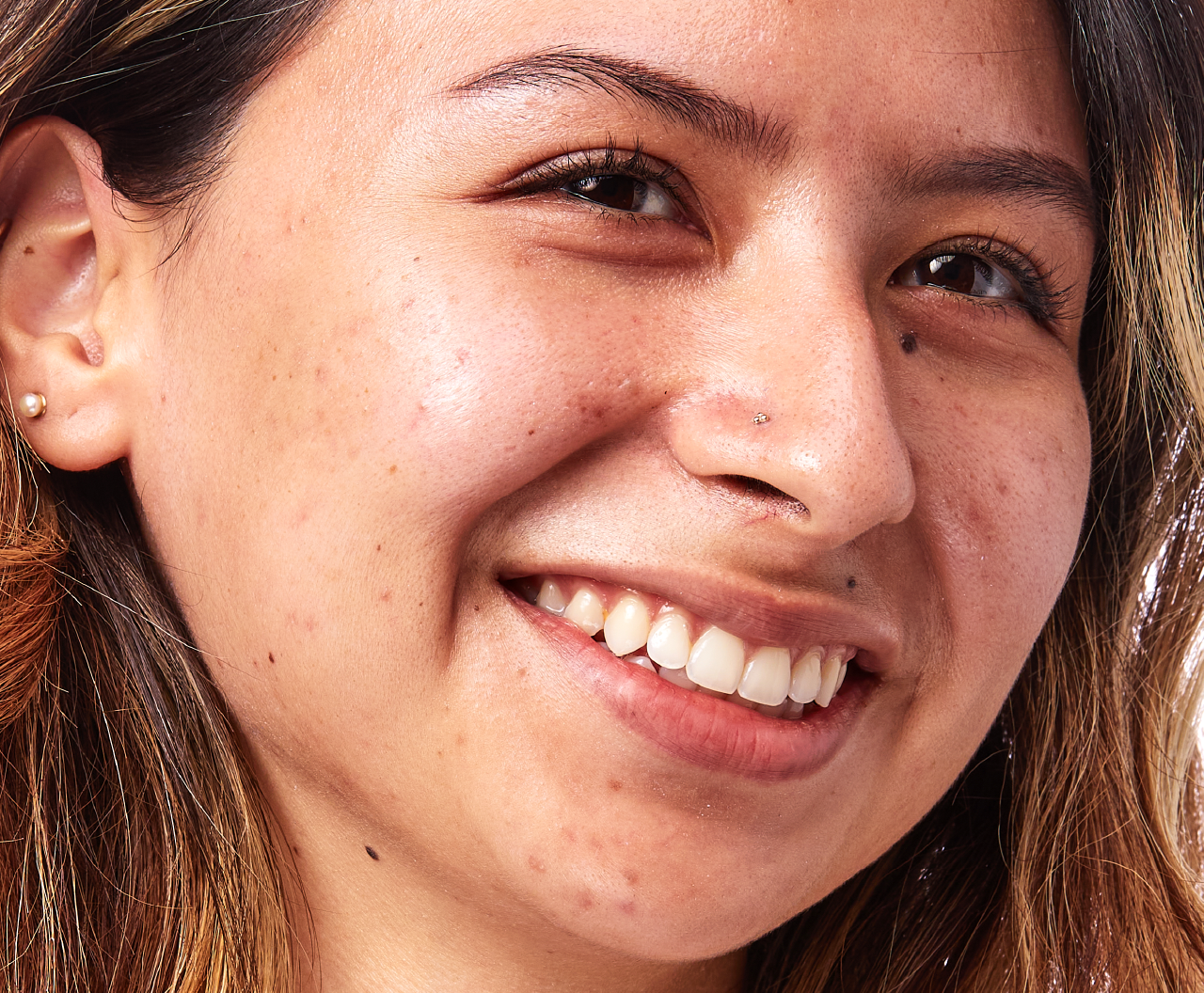
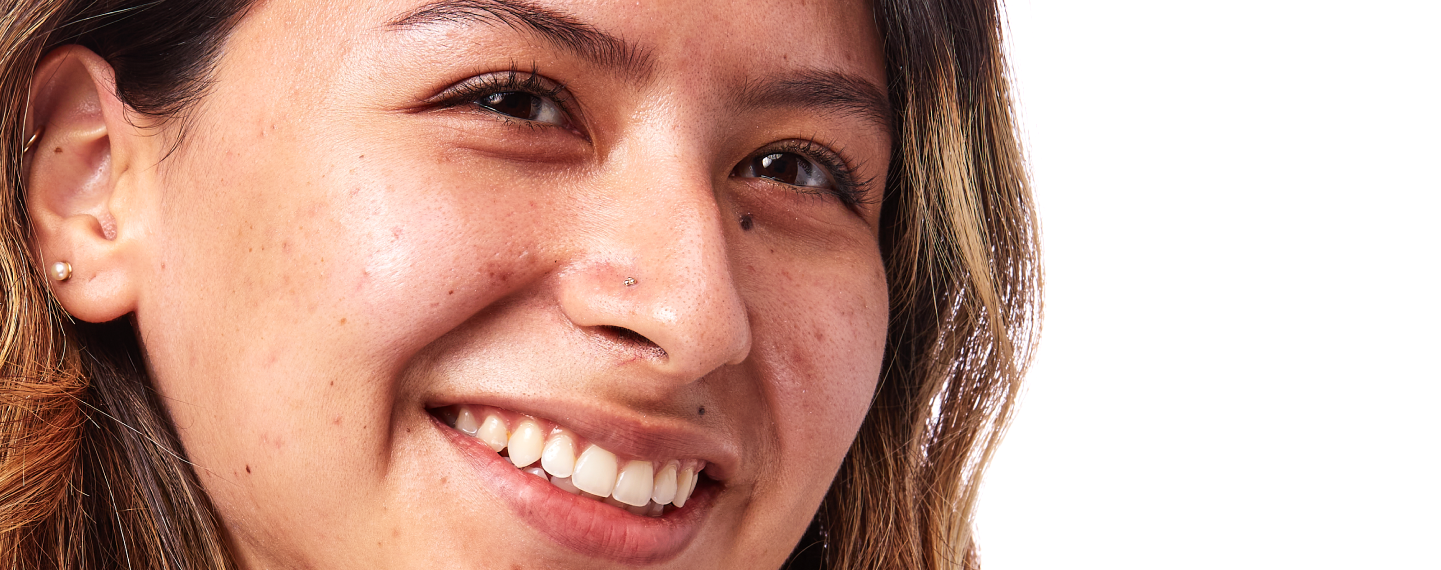
SHARE
Education
Best teen acne treatment
Medically reviewed by Kristin Hall, FNP
Written by Apostrophe Team
Last updated 4/1/2024
No one wants acne at any age, but having acne in your teens is the worst.
Between the already-awkward problems of adolescence, the self-consciousness everyone feels through these years, and the shallow, sometimes cruel ways peers can look at you, a pimple can feel like more than just a blemish on your skin.
The good news is that, just like your teen years, acne isn’t forever — especially with the right treatment.
Whether you have a few occasional pimples to deal with or persistent, face-covering breakouts, there is hope and help available — if you get the right treatment.
What Is Acne?
To fight your acne you have to understand your acne, so it’s probably best that we explain what it is.
Acne is a build of dead skin cells, excess oil, and sometimes bacteria in your pores: a result of an imbalance in normal skin behaviors. Four factors impact your acne breakouts: your skin’s oil production, its process of getting rid of dead cells, its hydration, and how bacteria are able to thrive in your follicles.
Acne goes by many names. You can experience white and blackheads, papules, cysts, and other types, but they’re all variations of the same kind of blemish.
Those blemishes occur when dead cells fail to leave your pores easily, and as a result, your sebaceous gland produces oil (sebum) to help them slide out more easily.
If things get clogged up, bacteria can grow in the sebum, feed on dead cells, and cause inflammation and, well, pimples.
Why the imbalance happens is less clear. Imbalances can come from diet and hydration issues, stress, or external factors like the sun and weather generally. But most often in your teen years, the root problem is hormones. Hormones like androgens are prolific during your adolescence, and they can throw oil production and everything else totally out of balance.
The Types of Acne
Though they’re all unattractive, not all pimples are created equally, and some can indicate more severe problems than others. Different kinds of blemishes have different levels of severity and might require different solutions.
For instance, blackheads and whiteheads are bumps filled with oil and dead skin — blackheads are open, and whiteheads are closed.
When whiteheads become inflamed, they’re called papules, and if the inflammation leads to the formation of pus, they’re called pustules.
If the materials inside become solid, the acne is called a nodule, and if the pus-filled pimple becomes severe, it’s considered cystic — which can cause scarring.
Oh, and there’s also fungal acne, which is rarer, but essentially a yeast species exists in your pore.
Mild acne typically is made up of mostly white and blackheads, and as you see more papules, pustules, and nodules, your acne becomes more severe.
How to Treat Teen Acne
Regardless of the kind of acne you’re suffering from, there are effective treatments available to you.
And there are quite a few strategies on how to deploy them that a healthcare professional might suggest.
Milder acne, for instance, might be treated simply with lifestyle changes: a more involved cleansing routine, a balanced diet, and minimized consumption of some foods.
But more serious acne might require more serious methods.
If you’re looking for more effective solutions, here are some strategies to employ:
Remove the Oil
The solution to your problem might be as simple as removing your excess oil. This can be done with blotting papers, astringents like witch hazel, or masks. For more extreme cases, a healthcare professional might recommend products like benzoyl peroxide or salicylic acid.
However, be careful with this.
Oily skin doesn’t necessarily mean more acne. In fact, your skin’s natural oil plays an important role in keeping oil and dirt away from your skin. Washing away too much of it may result in your body producing an excessive amount of it, which may actually contribute to acne breakouts.
Moisturizing
If you’re seeing acne regularly you might assume that extra moisture is the last thing you need to solve the problem, but excess oil and acne generally might be caused by a lack of water, both in your skin and generally in your diet.
Well-hydrated skin is better at dropping those dead cells, which stick together more when you’re dehydrated.
Part of the solution is to make sure you’re getting the recommended amount of water in your diet each day, but a more targeted approach is using a moisturizer daily.
Aloe vera is a natural ingredient found in some moisturizers, and many people find it helpful in increasing their glow, but a more proven ingredient in good moisturizers is topical hyaluronic acid, which has been shown in various studies to help skin retain moisture.
Exfoliating
Remember those dry skin cells we mentioned? Well, sometimes getting rid of them manually is a big help to your struggling skin.
A good wash and scrub to your face is a start, but you can actually scrub too hard, which will only create more problems. A better option? Chemical exfoliants.
One of the best chemical exfoliants available is a retinoid. Retinoids (which can be found as retinol or retin-A/tretinoin) are vitamin A compounds that both get rid of dead cells and boost your skin’s new growth.
Over-the-counter options exist, but prescription retinols like tretinoin might be a better option if your problems are serious.
Tretinoin has been an acne treatment option since the ‘60s, and it’s also been shown to increase collagen synthesis — something you’ll want to look into when your worries shift from acne to wrinkles.

PRESCRIPTION TRETINOIN
Target acne, dark spots, and signs of aging with this science-backed ingredient.
For tretinoin and retinoids in general, side effects can include irritation and peeling, so mention sensitive skin to a healthcare provider before taking a prescription retinoid on.
Lifestyle Changes
There are a lot of skin benefits to be had from lifestyle changes, and they can’t be overstated. Your natural processes can be messed up by a high glycemic diet, poor hydration, and general stress, and these things can lead to diabetes, hypertension, and plenty of other conditions you don’t want later in life (not to mention wrinkles).
Studies are far from conclusive on whether your diet can impact sebum production (though they suggest some correlations), but drinking more water and avoiding a high-sugar diet is just good for your health, regardless of your skin issues.
While you’re doing a lifestyle makeover, knock stress off your life. If you’re regularly feeling stressed out, consider asking your healthcare provider for a referral for a therapist.
How to Win the Teenage Acne Fight
Whether you’re off to grab some prescriptions or just making a pact with yourself to cut down on sugar intake, taking some steps to solve your acne problem is a great start.
But the first thing you should consider doing, particularly if your acne seems more severe, is consult a healthcare professional.
Acne can have a negative impact on your self-esteem, and make you embarrassed to socialize, and that’s the last thing anyone needs, at any age.
But acne can also be a sign of more serious problems, which a healthcare professional can help you get treated faster, and more effectively.
You don’t have to suffer, or be embarrassed — you just need to ask for help. You’ll thank yourself in the long run — and you’ll do the thanking with clearer skin.
Shop this post
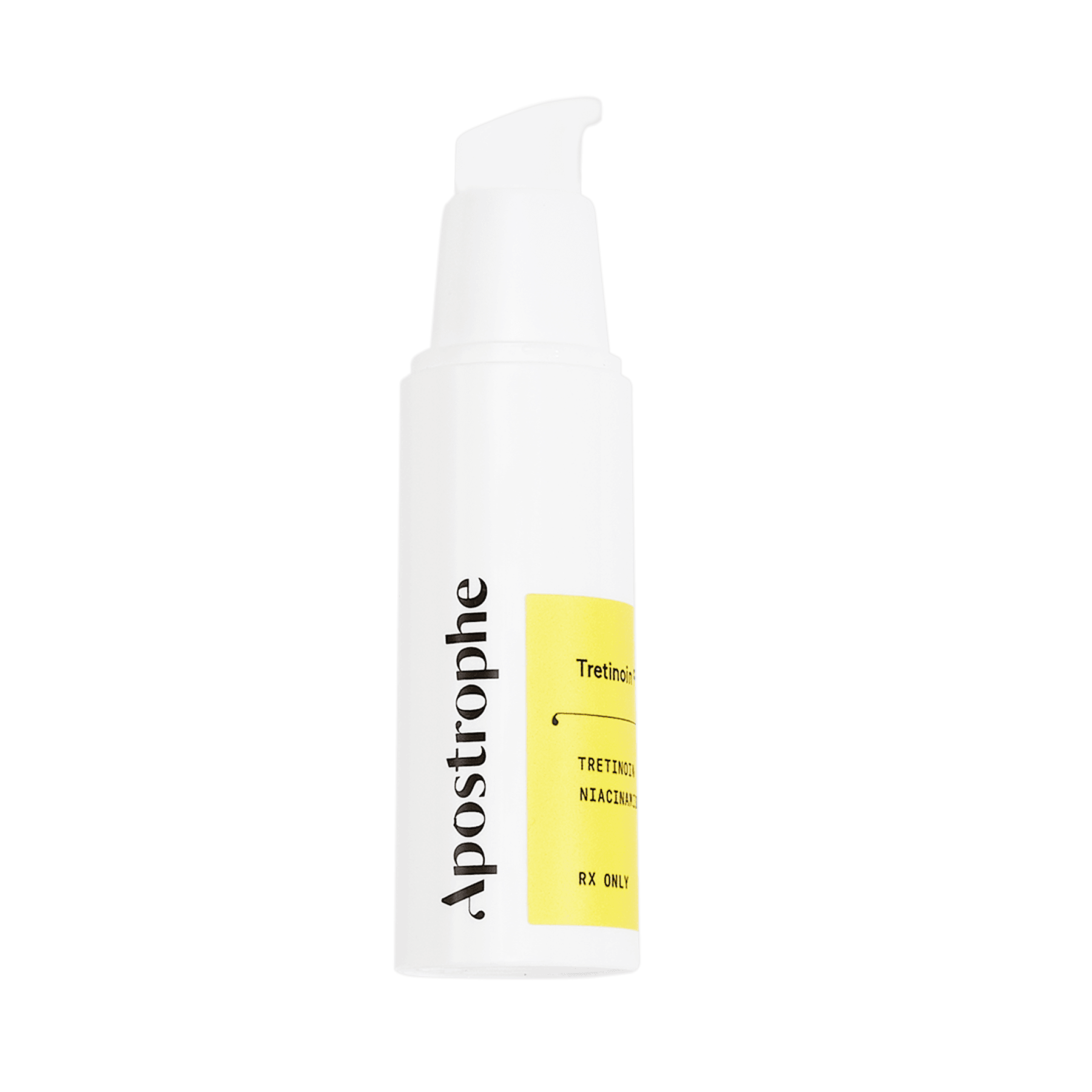
Tretinoin
Like what you just read? Sign up for our email list to get the scoop on skincare science delivered straight to your inbox.

Education
What is milia?
What is milia? Today, we’re jumping into one type of bump that you may have heard about most commonly in infants — milia.
Read More
Education
Best moisturizer for acne-prone skin
If you have combination acne-prone skin, figuring out which moisturizer is best for your skin might be tough. In this guide, we break down the best moisturizer for combination, acne-prone skin.
Read More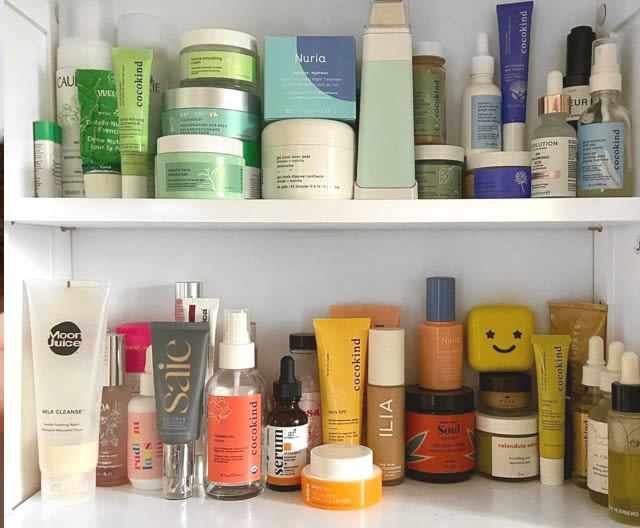
Education
How to build a face care routine
As you get into skincare, it might seem overwhelming, especially trying to figure out the order you're supposed to apply products in. Below, we detail how to build a face care routine for your skin!
Read More
